models Posts on Crowch
After the runaway success of Poor Things (2023), Emma Stone returns in the highly anticipated sequel “Poor Things: Resurrection”, set for release in fall 2025. Director Yorgos Lanthimos once again leads the project, promising a bolder, visually provocative, and philosophically rich continuation. Stone reprises her role as Bella Baxter — a character now evolving into a symbol of not just liberation, but transhumanist questions about what it means to be alive.
Set in a scientifically utopian version of London, Bella finds herself confronting a corporate elite experimenting with human cloning in pursuit of eternal youth. The core dilemma: is a person defined by memory, emotion, or flesh? Stone's Bella is older, wiser, and mythic — embodying questions that transcend the screen. Co-stars include Jessie Buckley, Paul Mescal, and Colin Farrell in striking new roles.
Artistically, the film is a masterwork of steampunk surrealism and neo-Victorian worldbuilding. Lavish costumes, painterly lighting, and bold production design turn every frame into a painting. Stone, having won an Oscar for the original, elevates Bella into a cinematic icon — not just a character, but a figure of philosophical resonance.
Premiering on October 11, 2025, with screenings at the Venice and New York Film Festivals, Resurrection is already being called one of the year’s boldest arthouse triumphs — and a testament to Emma Stone’s fearless commitment to challenging, transcendent roles.
Poor Things: Resurrection is not merely a sequel — it’s a radical reawakening of the cinematic universe Lanthimos first sculpted with mad elegance and philosophical daring. Where Poor Things introduced Bella Baxter as a liberated being reclaiming agency, Resurrection thrusts her into a post-human society where consciousness itself is a currency and biology is no longer destiny.
The film begins with Bella at the height of intellectual celebrity — a scientific pioneer, public speaker, and controversial philosopher. But with influence comes danger. When she’s invited into a seemingly utopian research society, she uncovers a disturbing reality: the institution’s experiments with “mortal recycling” aim to erase death not by preserving life, but by copying it. What starts as fascination quickly descends into a psychological and ethical labyrinth.
Bella becomes both subject and observer — navigating corridors of cloned bodies, fractured memories, and synthetic souls. The film challenges the viewer to consider not just what makes someone human, but when and why that humanity matters. As Bella grapples with versions of herself — literal and metaphorical — the lines between original and echo blur.
Emma Stone’s performance is layered with irony, tragedy, and grace. Gone is the impulsive wonder of the younger Bella; in its place is a woman unafraid of her contradictions. She is fierce, calculating, sometimes unkind — but always guided by a desire to understand existence at its core. It’s a performance that balances theatricality with surgical precision, and it anchors the film’s surrealism in emotional truth.
Lanthimos, meanwhile, uses the camera like a scalpel and a paintbrush. There are no traditional narrative beats here — scenes bleed into each other like half-remembered dreams. The aesthetic blends Victorian technology with dystopian futurism, creating a hybrid world where cobblestone streets lead to genetic labs and gaslights illuminate philosophical salons. Cinematographer Robbie Ryan’s work evokes both old-world opulence and cybernetic unease, while Jerskin Fendrix’s score pulsates with operatic dissonance.
Jessie Buckley delivers a wild and unforgettable turn as a rogue scientist who both rivals and reveres Bella. Paul Mescal plays an enigmatic archivist who stores the memories of deceased thinkers — a man caught between obsession and devotion. Colin Farrell, reuniting with Lanthimos once again, offers a haunting portrayal of a once-revolutionary now complicit in the very system he once sought to dismantle.
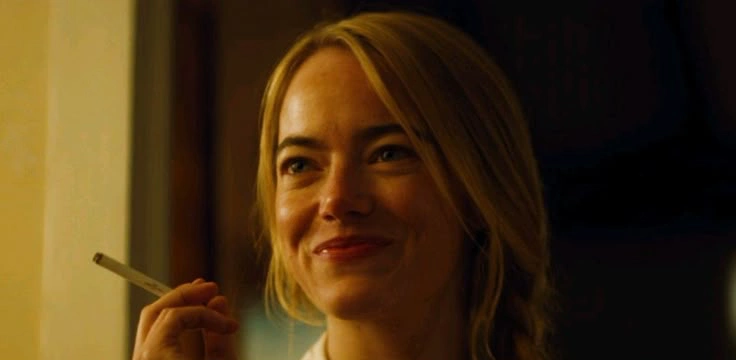
But at the heart of it all remains Bella — not just reborn, but redefined. Her arc in Resurrection transforms her into a mythic figure, not by virtue of power, but by insight. She becomes a mirror through which society’s deepest hopes and fears are reflected: immortality, autonomy, meaning, and the right to change.
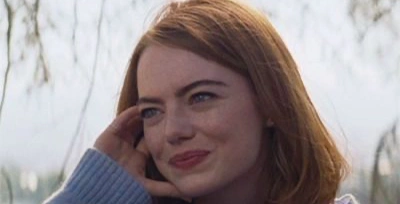
As with Lanthimos’s best work, Resurrection does not offer comfort. It seduces, provokes, and ultimately destabilizes. It is at once grotesque and gorgeous, absurd and profound. It demands intellectual engagement — not with answers, but with questions that linger long after the final scene fades to black.
More than a film, Poor Things: Resurrection feels like an evolution in arthouse cinema — unafraid to break form, reshape genre, and challenge the emotional bandwidth of its audience. Emma Stone’s Bella Baxter stands now not just as a character of the moment, but as a landmark in the storytelling of the future.
In March 2025, Tom Holland brings his unmistakable charisma to the screen in the eco-thriller “The Last Forest”, directed by Lena Karpova. Co-starring Svetlana Ustinova and Zhang Chiwen, the film investigates the disappearance of mysterious forests in Russia’s Zabaykalsky region — a story blending environmental anxiety with personal drama. Holland plays a geologist-inspector caught between science and corporate corruption surrounding natural resources.
Known for blockbusters like Spider-Man and Uncharted, Holland’s role in “The Last Forest” marks a significant creative challenge: the film not only aims to captivate visually with its Siberian forest setting, but also to showcase Holland’s capacity for nuanced, dramatic performance. Where many see only action, Holland delves into complex emotional terrain.
The film debuts on March 22, 2025, with Holland confirmed to appear at its Berlin festival promotion. “The Last Forest” is shaping up to be one of the most memorable independently produced Russian films with global backing — and Holland’s contribution is central to its impact.
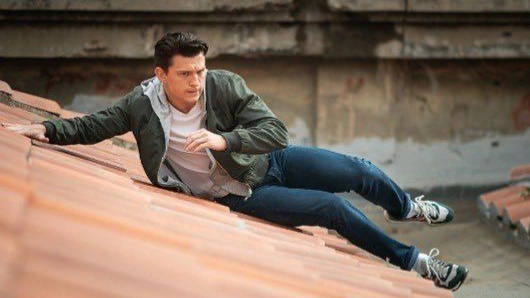
The Last Forest is not just an eco-thriller — it’s a quiet cry for help wrapped in a suspenseful, beautifully composed mystery. Set in the remote and hauntingly vast Zabaykalsky Krai of Eastern Siberia, the film uses its isolated setting as both narrative catalyst and atmospheric character. Director Lena Karpova — known for her minimalist, emotionally resonant storytelling — crafts a film that feels simultaneously intimate and epic.
Tom Holland plays James Calder, a British geologist who has spent years mapping disappearing biomes across Eurasia. Sent to investigate why entire tracts of ancient forest are vanishing without trace — not burned, not logged, but seemingly erased — he finds himself in a world where nature and truth are under siege. What begins as a scientific expedition quickly transforms into a confrontation with forces far beyond what his instruments can measure.
The deeper he ventures into the wilderness, the more unsettling his findings become. Animal populations are silent. Trees rot from within. Entire GPS-mapped valleys seem to vanish overnight. What James discovers is not a natural process — it’s a controlled dismantling, orchestrated by a global resource conglomerate whose reach stretches into government and private industry alike.
Holland’s performance is raw and restrained. Gone is the boyish exuberance of his Marvel years — here, he plays a man hollowed out by disillusionment, desperately trying to stay rational in a world that no longer follows rational laws. His James is methodical, but shaken. Courageous, but afraid to admit the scale of the crisis he’s uncovering. The role gives Holland space to embody quiet dread, grief, and a desperate, flickering hope for redemption.
Svetlana Ustinova co-stars as Irina Mikhailovna, a local botanist and former dissident who lives in near-exile at the edge of the forest. Her character provides not only scientific insight, but a cultural lens through which James must reexamine his Western approach to nature and knowledge. Irina believes the forest is not just an ecosystem, but a living memory — one that remembers destruction and doesn’t forgive it easily.
Zhang Chiwen brings measured intensity as Dr. Zhao Jian, a Chinese climate data analyst assigned to collaborate with James but secretly working with unknown interests. His loyalty, methods, and personal convictions remain shrouded in ambiguity, adding to the film’s growing sense of paranoia and unease.
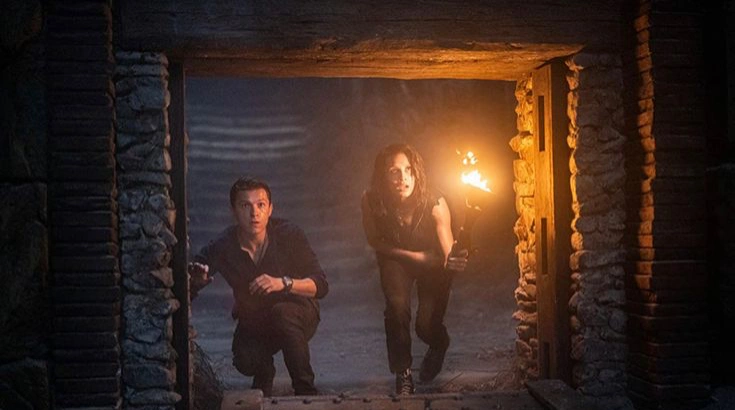
Visually, The Last Forest is stunning. Cinematographer Mikhail Alekseev captures the eerie silence of Siberia’s taiga with vast drone shots, fog-drenched ravines, and natural light that shifts from golden serenity to suffocating gray. The film moves slowly and deliberately, evoking a sense of creeping dread reminiscent of Tarkovsky’s Stalker and the ecological horror of Annihilation.
Composer Hildur Guðnadóttir delivers a sparse, unsettling score using field recordings of wind, creaking branches, and distorted birdcalls. The sound design itself becomes part of the storytelling — reinforcing the idea that the forest is watching, responding, changing.
But beneath the surface mystery lies a deeper meditation: on exploitation, colonialism, and the irreversible damage of human arrogance. As James uncovers corporate secrets buried in the soil — and faces his own complicity — the film asks pressing questions about what it means to be a witness, and what it costs to act.
Premiering on March 22, 2025, at the Berlin International Film Festival, The Last Forest is already generating buzz for its genre-defying mix of thriller, slow-burn drama, and environmental philosophy. For Tom Holland, the film is a bold, career-defining shift — a chance to prove that his talents extend far beyond the high-flying action of blockbusters.
And for audiences, it is a haunting reminder: the earth may not scream when it suffers — but it never forgets.
Summer 2025 is set to amplify theaters with roars and awe as Jurassic World Rebirth revives the iconic dinosaur franchise. Debuting July 2, this seventh installment continues the legacy of Jurassic Park/Dominion, directed by Gareth Edwards (Godzilla) and penned by David Koepp — co-writer of the original Jurassic Park.
The film introduces a dynamic trio: Scarlett Johansson as covert ops expert Zora Bennett, Mahershala Ali as team leader Duncan Kincaid, and Jonathan Bailey as paleontologist Dr. Henry Loomis. Their mission leads them to the secluded Isle Saint-Hubert in the Atlantic Ocean — a former InGen dinosaur testing ground
They’re tasked with finding the planet’s three largest remaining prehistoric creatures — land, sea, and air species — only to discover genetically mutated dinos, including the horrifying Distortus rex, a six-limbed T-Rex evocative of H.R. Giger’s biomechanical nightmares
Jurassic World Rebirth pledges to deliver the cinematic grandeur, scientific wonder, and primal terror fans crave. With a $180 million budget, vibrant locales in Thailand, Malta, and the UK, and a score by Alexandre Desplat paired with John Mathieson’s cinematography, the production honors the original’s spirit .
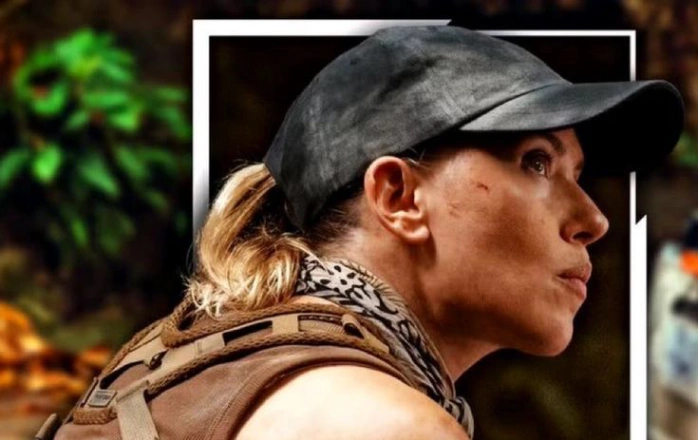
The early trailers hint at a potent mix of nostalgia and evolution — familiar dino mayhem alongside new emotional stakes and high-tech thrills. The team’s immersion in a primordial environment, edged with genetic unpredictability, promises a tense, immersive experience.
This July, Jurassic World Rebirth aims to reconnect audiences — from families and genre fans to franchise loyalists — with the epic spectacle of humans confronting ancient predators on a grander scale. The box-office debut will reveal if the film lives up to expectations, but for now, it stands as the summer’s most anticipated dinosaur event.